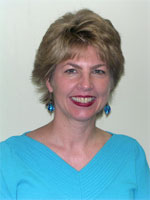Capitol Hill summons Brownell (again) to weigh in on controversial special ed legislation
For the second time in recent months, federal lawmakers have sought the expertise of UF special education professor Mary Brownell, inviting her to Capitol Hill in early January to deliver a policy brief on controversial federal legislation concerning the teaching of children with disabilities.
Summoned by staff aides for members of the U.S. Senate Committee on Health, Education, Labor and Pensions, Brownell, Jane West, senior vice president of the American Association of Colleges for Teacher Education (AACTE), and other key advocacy group representatives presented a briefing on the dangers of a new legislative amendment that allows states to classify teaching interns still in training as “highly qualified” teachers—so they can meet a standard set in the federal No Child Left Behind Law..
President Barack Obama had approved the measure in December as part of an unrelated federal spending bill. The provision cancels an earlier U.S. Court of Appeals ruling that the classification violates the NCLB Act of 2002. The new amendment remains in effect until the end of the 2012-13 school year.
Brownell and other advocates assailed the new legislation, saying the less experienced interns are disproportionately assigned to schools with mostly poor and minority students. Brownell was the sole university researcher present from the special education field.
Their policy brief spurred a coalition of more than 50 advocacy organizations—including education, civil rights, disability, student, parent, and community groups—to submit a letter in late January to President Obama calling for repeal of the provision.
The No Child Left Behind law requires all students to be taught by “highly qualified” teachers with state teaching credentials, but a 2004 Bush policy allowed states to bestow that status to interns working toward certification.
In her policy brief, Brownell said policymakers and educators need to identify effective strategies for increasing the supply of special education teachers who are extensively prepared.
“Simply making it easier for special education teachers to enter the classroom (as interns, for example) is only a temporary and ineffective solution . . . one that places students with disabilities at further risk academically,” Brownell wrote.
Brownell, who is the Irving and Rose Fien Professor in Education at UF, cited several research findings at UF and elsewhere demonstrating that students of special education teachers with more preparation generally attain higher achievement gains. She said studies also show that special education teachers with more experience had students with higher achievement gains in reading than teachers with less experience.
The January policy briefing marked Brownell’s second interaction with federal lawmakers in recent months. Brownell and UF colleague Paul Sindelar last year helped draft recommendations on special education teacher quality and evaluation for the congressional House Education Committee. This time, her work with the other advocacy agencies has generated recommendations for language regarding highly effective teachers in the Elementary and Secondary Education Act.
CONTACTS
Source: Mary Brownell, professor, special education, 352-273-4261; mbrownell@coe.ufl.edu
Writer: Larry Lansford, director, news & communications, 352-273-4137; llansford@coe.ufl.edu






